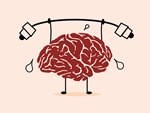I’ll just send one more email before I leave; phone another customer before they finish for the day; I must remember to pick up a birthday cake for my son’s birthday on the way home; text my partner to remind them to switch the oven on; think about what I’m going to wear to that important presentation to a new client tomorrow; and find the ideal gift for my best friend’s wedding at the weekend. Sound familiar? You feel like the proverbial Eveready bunny not entirely sure when the battery will run out! Perhaps you can put off exercise for another day, week, month and surely sleeping over four hours a night and eating regular healthy meals is overrated, right?
You are working hard and playing hard, running on adrenalin and the stress hormone cortisol and some of the time it’s fun and exciting. However, you’ve noticed recently that you are struggling to get a good night’s sleep, the weight is creeping on around your middle and you just can’t seem to throw off that niggling sniffle. You seem a bit snappy and irritable and have found yourself making silly mistakes and having to double check your work as you can’t seem to focus, especially on a Monday morning.
If only you could just achieve a better work-life balance you wouldn’t feel so exhausted!

I realised I was running on empty when half way through a journey from home to a hotel in London, I suddenly woke up from thinking about the million and one things I had to do to realise I had programmed the satnav with the postcode for a hotel in Slough where I was staying later in the week, some 40miles away from where I needed to be!
Time to take my superwoman pants off and start focusing on my health and wellbeing!
The World Health Organisation defines health as a “a state of complete physical, mental and social well-being and not merely the absence of disease or infirmity”. So how do we achieve this whilst responding to the pressure to deliver results whether imposed by our employer, our clients or ourselves?
It is well documented that if we improve or manage our health and wellbeing, we will perform better, feel happier, full of energy and able to deliver great results for the organisations we work for.
Most of us are aware of this, however there can be a real disconnect between knowing what we need to do and actually doing it on a consistent basis.
So, let’s have a look at some of the key areas of wellbeing and remind ourselves that even implementing small changes can improve and make a tangible difference to our overall health and ability to perform at our best.
Exercise
Exercise really is the magic bullet for keeping us living a long and healthy life. It has been proven that exercise decreases our risk of major illness such as heart disease, stroke, type 2 diabetes and cancer by up to 50% and the risk of an early death by 30%.
The NHS recommends that we take at least 30minutes of moderate aerobic exercise five days a week i.e. cycling, swimming, brisk walking, and include resistant or strength building activities on at least 2 days per week that work all the major muscle groups.
This doesn’t have to be in 30minute bursts, it can be spread out over the day and if you increase the intensity you can exercise for less time and still achieve the same results – 1 minute of high intensity training (HIT) achieves the same as 2 minutes moderate intensity exercise. If you mix it up then you are on to a winner!
The key to exercise is to find something that you enjoy doing and can incorporate into your daily and weekly routines. And, remember how good it will be with all those endorphins cruising around you body, you’ll feel more relaxed, good about yourself and sleep better. It can take as little as ten to thirty minutes of intense exercise for some people to trigger endorphins.
Sleep
 A good night’s sleep is restorative and essential to our physical and mental health. It consolidates our learning, memory, decision making and protects us against stress, mood swings and mental illness such as anxiety and depression. It also plays a key role in healing and yet, so many of us fail to achieve the recommended 7 to 9 hours a day. This is even more difficult for shift workers. The Sleep Council provide some top tips for gaining control over an erratic sleep pattern:
A good night’s sleep is restorative and essential to our physical and mental health. It consolidates our learning, memory, decision making and protects us against stress, mood swings and mental illness such as anxiety and depression. It also plays a key role in healing and yet, so many of us fail to achieve the recommended 7 to 9 hours a day. This is even more difficult for shift workers. The Sleep Council provide some top tips for gaining control over an erratic sleep pattern:
- Caffeine is a stimulant, so try and avoid anything containing caffeine at least six hours before sleep.
- Avoid eating a heavy meal at least two to three hours before sleeping.
- Whatever time you plan to sleep, wind down properly before hand and avoid using mobile phones, iPads and watching TV an hour before sleep and particularly in the bedroom. The blue light from electronic devices has now been linked to eye problems and certain cancers and shown to disrupt melatonin the hormone needed to regulate sleep¹.
- When working a night shift, try a short nap (no longer than 40 minutes) around two hours before work to boost energy levels.
- Keep bedroom décor calm and soothing. Trying to sleep in the day is hard but ensure there are dark curtains and a blackout blind to block out light. Use foam ear plugs to muffle external noise.
- If you have trouble getting to sleep, lavender, passion flower, hops, orange blossom, Scot’s pine, camomile and peppermint all claim to promote sleep. And milky night time drinks can help you to sleep.
- Try to catch up on ‘recovery sleep’ at weekends or on days off. Where possible, try ‘anchor sleep’ where you have at least four hours sleep at the same time every night / morning, for example between 3am and 7am.
Diet and Nutrition
What we put into our bodies today will dictate our health in the future! If you eat too much chocolate, cake, sugar laden and processed food and take very little exercise, you will put on weight and potentially fall ill through a lack of important nutrients, not to mention predisposing yourself to type 2 diabetes, cancer, arthritis and heart disease.
 It may also surprise you to learn that if you are holding fat around your middle it can be an indicator of visceral fat which is particularly dangerous to your health. Chronic stress is often the enemy to storing fat around the middle, caused by too much adrenalin and the stress hormone cortisol. If you are in any doubt about this then have a read of Dr Marilyn Glenville’s book written on the subject².
It may also surprise you to learn that if you are holding fat around your middle it can be an indicator of visceral fat which is particularly dangerous to your health. Chronic stress is often the enemy to storing fat around the middle, caused by too much adrenalin and the stress hormone cortisol. If you are in any doubt about this then have a read of Dr Marilyn Glenville’s book written on the subject².
We need to balance the key nutrients such as protein, fats and slow-releasing carbs and understand that in each case there are good and not so good food sources in each of these three areas. Sugar really is the enemy and as addictive as cocaine (or so I’m led to believe!) It’s the hidden and less obvious sugar in things like bread – hold a piece in your mouth and notice how sweet it becomes – and breakfast cereals. Don’t be hoodwinked by the ‘no added sugar’ labels – this can often mean there is so much in the food to start with they don’t need to add anymore! Low fat food will almost always be high in sugar which they add for taste and low-fat yoghurt is classic for this.
Achieving a healthy diet can be a challenge particularly when your work patterns don’t allow for a lot of routine. One of the keys to overcome this is planning so that you know exactly what and when you are going to eat to avoid getting so hungry that you grab the first thing that comes to hand, which I guarantee will not be an apple!
Comfort eating can be an issue for some and so finding strategies that work is key. If you do succumb, then the worst thing to do is give yourself a hard time and make matters worse. Move on and decide to eat better the following day.
It doesn’t really matter what dietary approach you take i.e. 5:2, low carb, regular fasting, Slimming World, Weight Watchers etc. etc. as long as you can sustain it over the long term and create healthy habits that give you the energy, ideal weight and health that you desire. If you don’t have these three things, then be honest with yourself and make some changes today.
Mind (Mental) Health
 The final topic I’d like to mention underpins all areas of wellbeing. Your thinking has a direct impact on how you feel and therefore how you behave and the actions you take. If you are not feeling good, becoming hyper critical of yourself and others, getting stuck in negative thinking and generally feeling unhappy then its time to take stock and consider what you can do to make some changes.
The final topic I’d like to mention underpins all areas of wellbeing. Your thinking has a direct impact on how you feel and therefore how you behave and the actions you take. If you are not feeling good, becoming hyper critical of yourself and others, getting stuck in negative thinking and generally feeling unhappy then its time to take stock and consider what you can do to make some changes.
Positive psychologists suggest that it takes around 7 to 10 positive thoughts to out weight the one negative. Consider when you last thought or said something positive about yourself or others?
Here’s some ideas for getting things into perspective;
- Make a list of you at your best (forget the list of you at your worse because this is often top of most people’s mind anyway)
- Keep a journal and record all the things you are grateful for
- Spend time helping and giving to others
- Practice Mindfulness to live in the moment – ‘Headspace’ is a great app to download and use daily. Mindfulness has been proven to lower stress levels if practiced regularly
- Spend time around positive people who raise your energy
- Take time every week to do the things you love to do
My current favourite book is 10 Keys to Happier Living my Vanessa King – full of practical suggestions for increasing your happiness levels and changing the way you think about your wellbeing and happiness.
Finally, there is no health without mental health and if you find yourself struggling to cope, experiencing anxiety, depression or other symptoms that are getting in the way of your normal day to day activity and enjoyment then do not hesitate to seek help from your GP in the first instance. It is just as important to look after your mental health as it is your physical health.
¹ https://www.health.harvard.edu/staying-healthy/blue-light-has-a-dark-side
² www.marilynglenville.com/womens-health-issues/fat-around-the-middle/


